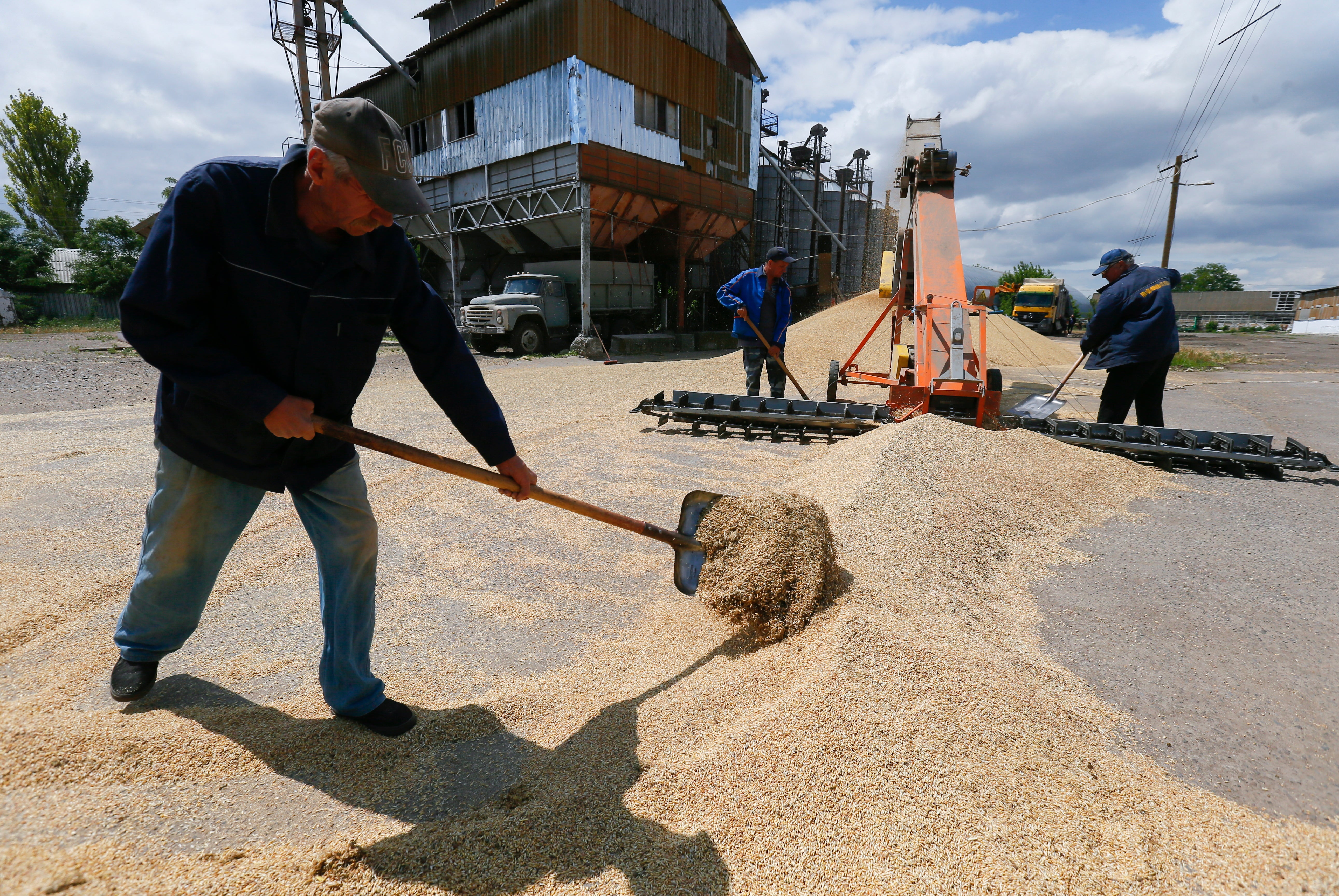The West has three options when it comes to famine caused by the war in Ukraine
Editorial: Option one is to do nothing, and the deafening silence on action to end the global food crisis from the G7 suggests this is the favoured approach

Often as not, it is what doesn’t come out of an international summit that is the important thing – and right now that is heartbreakingly true of the G7 leaders. They are, quite simply, ignoring the incipient widespread famine that is emerging as a tragic consequence of the Russian invasion of Ukraine.
Because of the disruptions of the war and the mining and blockade of the port of Odesa by the Russian Navy, millions of tonnes of grain and sunflower oil that should now be feeding people in Africa, the Middle East and south Asia is sitting in warehouses waiting to be exported or to rot or to be stolen and transported to Russia. When there are bread queues in Ukraine, there should be cause for concern.
The West has three options, all of them unpalatable and risky.
Option one is to do nothing, and the deafening silence on action to end the global food crisis from the G7 suggests this is the favoured approach. In effect this would condemn thousands if not millions of the poorest in nations from Ghana to Yemen.
As ever, those at the very bottom of the pile will be the first to go hungry, but many more will follow as inflation prices them out of the market. It is a horrendous prospect, made worse by the knowledge that the next harvest is going to be about half its normal size because of the dislocations of war in Ukraine. Bad weather and poor harvests elsewhere in the world could make this crisis even worse. It seems destined to get worse, in any case.
Apart from the immediate humanitarian crisis, such instability in large swathes of low-income and developing countries will cause riots, spark conflict, and increase migration to the West. The global pressure to do something to get food into bellies will in time force the rich world to act – but too late for some.
A second option is suggested by the Kremlin. The Russians have offered to allow safe passage of the wheat and cooking oils out of Ukraine and through the Black Sea to North Africa and beyond – if the sanctions are relaxed. It is a form of blackmail and would hasten a decisive defeat of Ukraine. Sanctions, including the most draconian, take time to be effective, and even now European nations are still importing Russian gas.
The fact is that if Russia does control Ukrainian agriculture, directly or indirectly, it will be in the same position it was in regarding fossil fuels – able to hold the West and the rest of the world to ransom. It would certainly not end Vladimir Putin’s ambition to reform the old Soviet and Russian empires.
The third option is to force a safe corridor for food to come out of Odesa and break the blockade. This, though, would require unprecedented international cooperation. To be effective it needs to be backed by a global “coalition of the willing”, not confined to Nato and backed by the navies of many nations, even if some can only be a token force. A huge armada will be required to gain control of Ukrainian and international waters, to clear the mines and deter the Russian navy from sinking the shipping.
To keep up to speed with all the latest opinions and comment sign up to our free weekly Voices Dispatches newsletter by clicking here
Turkey, the custodian of the entrance to the Black Sea and the guarantor of the international Montreux Convention, will have to be persuaded to allow military traffic through the Black Sea. Thus far, President Erdogan has proved an equivocal ally, sincere though his efforts to secure peace in the region may be.
Faced with the combined pressure, and friendly incentives, of his Nato allies and EU neighbours he may be induced to irritate the Kremlin. Yet it cannot be in Turkey’s long-term strategic interest to have an aggressive, expansionist Russia making trouble nearby. Nor, indeed, to have a wave of coups and violence echoing the Arab Spring running through the region. Traditionally, Russia and Turkey are natural rivals, after all.
Thus far, though, the magnificent seven haven’t addressed those uncomfortable choices. For every day that passes without sign of resolute action, there is more chance that Russia will starve the world into submission. No one enjoying the beautiful Bavarian scenery this week should be in any doubt of Vladimir Putin’s willingness to sacrifice yet more lives for the sake of his megalomaniacal project.
Join our commenting forum
Join thought-provoking conversations, follow other Independent readers and see their replies
Comments
Bookmark popover
Removed from bookmarks